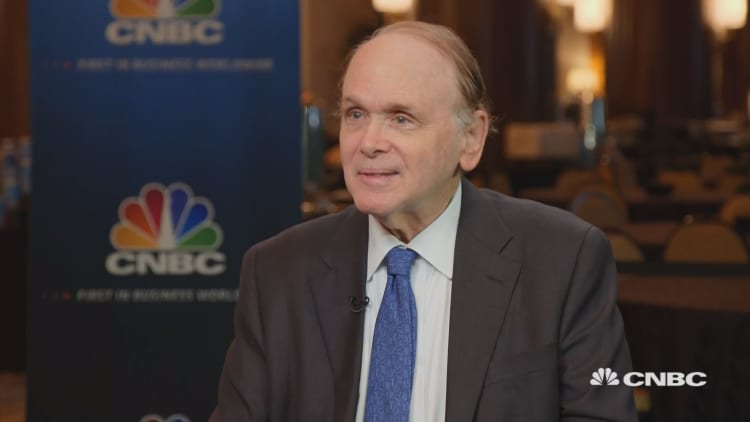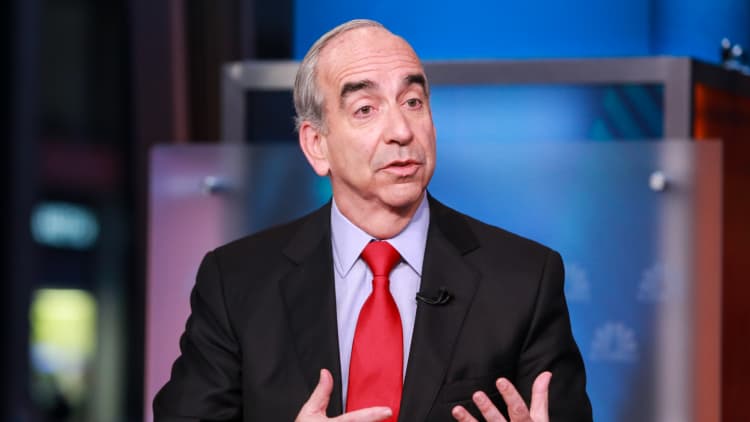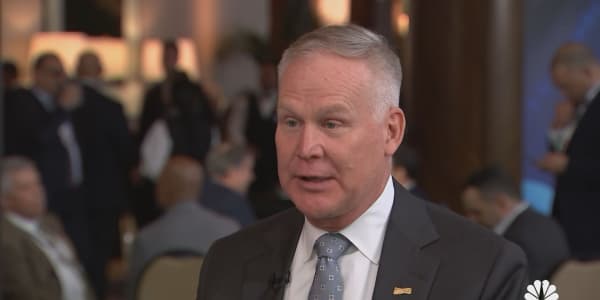In recent months U.S. shale drillers have answered investors' calls to tighten their belts, showing they are finally willing to do what's necessary to return cash to shareholders.
In return, investors sold off their stocks.
The latest episode in the American shale revolution shows that shale drillers — and their stock prices — are entering a transition period. Drillers are exercising the financial discipline that could generate a return on investment, but shareholders are now seeing the production growth that first attracted them to the stocks fade.
Today our dilemma is that as a sector, we have destroyed a lot of trust in the investment community over the last decade.Lee TillmanMarathon Oil chairman and CEO
That trend came to a head over the last month, when many drillers cut spending and lowered production guidance for 2019.
The title of a recent research note by Simmons Energy summed up the the response: "No Good Deed Unpunished." Simmons analysts called the reaction from investors "nothing short of punishing."
Though it's rallying this week, the SPDR S&P Oil & Gas Exploration and Production exchange-traded fund tumbled 8 percent between the start of the drillers' earnings season in February and the end of last week. During the same time, the rose 1.4 percent.
But it's not as simple as saying investors sold the stocks because production growth forecasts fell, said Osmar Abib, chairman of global energy at Credit Suisse. The space is also on shaky ground because investors aren't yet sure drillers will hold the line on spending.
"I would say it's a bit of a 'show me' situation, and so one quarter isn't long enough," he told CNBC on the sidelines of the CERAWeek by IHS Markit energy conference in Houston. "I think investors need to see a little bit more time, a little bit more evidence, and I think there's still concern that if oil prices go back up, that some of this discipline might erode to a certain degree."

Investors have good reason to be wary. Throughout much of the last decade, shale drillers borrowed heavily to underwrite spectacular production growth. But few companies have proven they can reliably generate free cash flow or meaningful returns for investors.
"Today our dilemma is that as a sector, we have destroyed a lot of trust in the investment community over the last decade," Lee Tillman, chairman and CEO of Marathon Oil, said during a panel on shale drilling at CERAWeek on Tuesday.
Exercising fiscal discipline means throttling back spending, which translates into lower production growth. That lower growth in turn makes stock price valuations look less attractive.
"I'd say there's a recalibration of stock prices going on with the shale drillers," Hess CEO John Hess told CNBC at CERAWeek.
Hess is one of the companies that produces oil in North Dakota's Bakken shale fields, where drillers use advanced methods like hydraulic fracturing to free fossil fuels from rock formations. These "frackers" have to constantly reinvest because shale wells produce a burst of oil at first, but then output declines sharply.

"It's very capital intensive, and I think investors started to realize this and said, wait a second, I'm not going to pay you a multiple of 10 for that because I'm never going to see any return. In fact, I'm incentivizing you to grow if it's a 10," Hess said.
Shale drillers also face competing priorities from different kinds of investors, said Abib.
"They're getting a lot of different feedback depending on who that particular investor is. Certainly folks that are more focused on the short-term, generally hedge funds, have a very different perspective than a long-term, value-only fund, and so they're trying to address all these different constituencies," he said.
How shale drillers respond to investor demands in the coming years could have major implications for the wider oil market. Not only is shale driving the boom in American output, but the U.S. is expected to deliver about 70 percent of growth in global oil production over the next five years.
Doug Suttles, CEO of shale driller Encana, said frackers certainly need to exercise discipline, but he also turned the message around on investors.
"We actually need discipline coming from investors as well," he said during the CERAWeek shale panel on Tuesday. "Otherwise what we will create is — longer-term — complete lack of investment in other oil and gas projects that will ultimately be needed at some point in the future."





